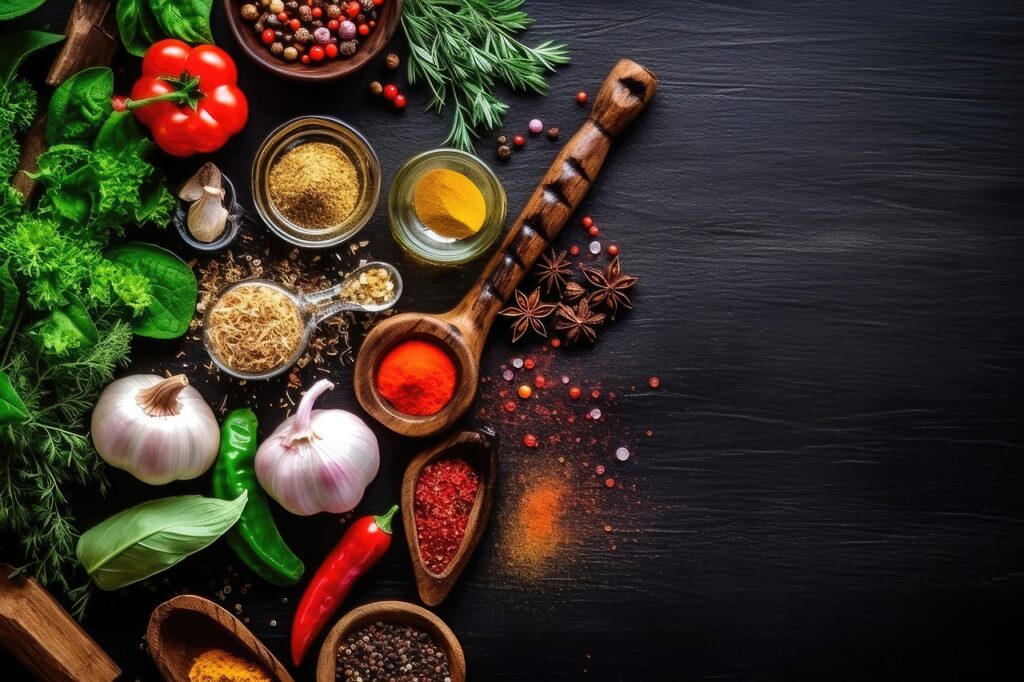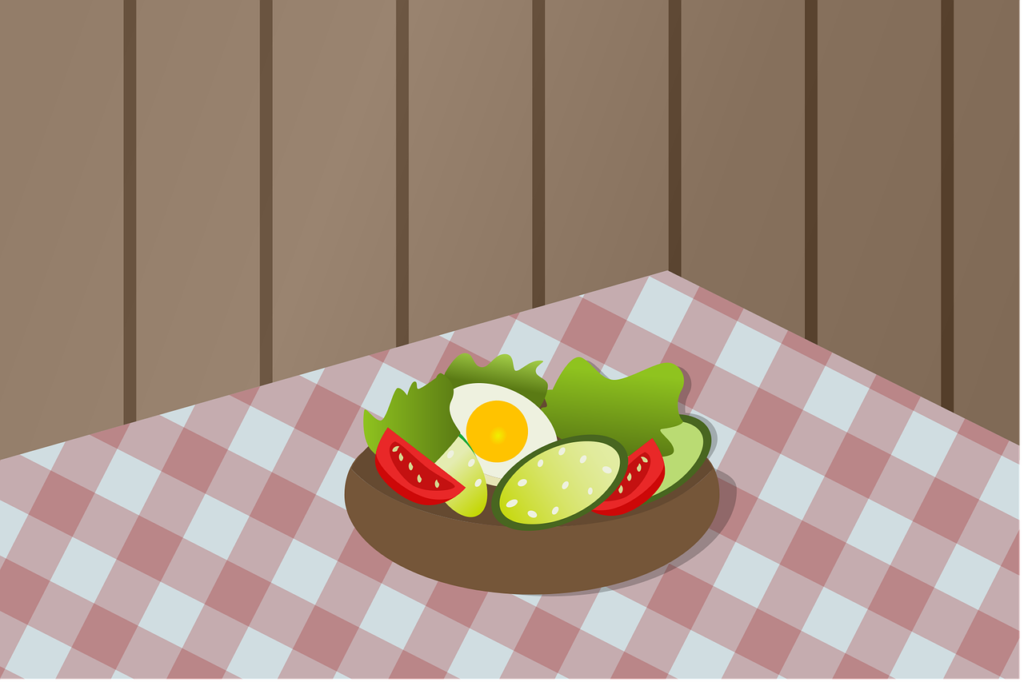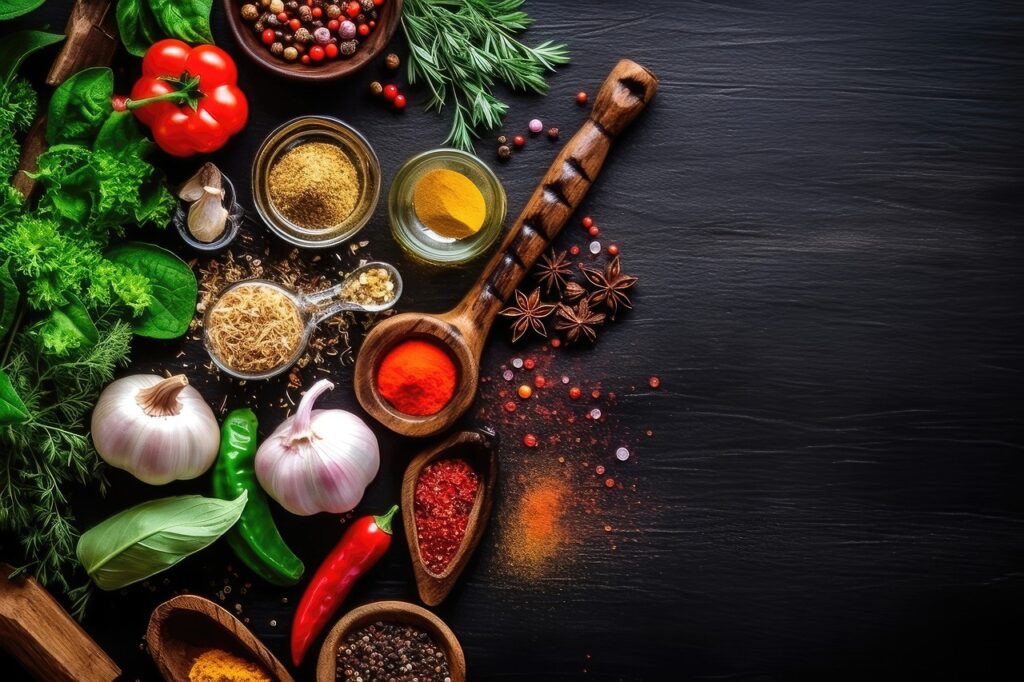Are you looking to shed some unwanted pounds and embrace a healthier lifestyle? Look no further! In “The Ultimate Guide to Plant-Based Diet for Fat Loss,” we will explore the benefits and strategies of adopting a plant-based diet to achieve your weight loss goals. Discover how incorporating more fruits, vegetables, whole grains, and legumes into your meals can lead to sustainable and effective fat loss. Get ready to embark on a journey of delicious and nutritious plant-based meals that will nourish your body and help you reach your desired weight.
Understanding the Plant-Based Diet
What is a plant-based diet?
A plant-based diet is an eating pattern that focuses primarily on consuming foods that come from plants. This diet emphasizes fruits, vegetables, whole grains, legumes, nuts, and seeds, while minimizing or eliminating animal products. While some people may choose to follow a strict vegan or vegetarian diet, others may incorporate small amounts of animal products like fish or dairy. The main goal of a plant-based diet is to center your meals around nutrient-dense plant foods.
How does a plant-based diet promote fat loss?
A plant-based diet can be an effective way to promote fat loss for several reasons. Firstly, plant-based foods tend to be high in fiber. Fiber not only helps to keep you feeling fuller for longer, but it also helps to regulate blood sugar levels and improve digestion. This can help prevent overeating and promote weight loss.
Secondly, a plant-based diet is generally lower in calories compared to diets that include large amounts of animal products. Plant-based foods are typically less energy-dense, meaning you can eat a larger volume of food for fewer calories. This can help create a calorie deficit, leading to weight loss over time.
Lastly, a plant-based diet is rich in nutrients. When you focus on consuming a variety of plant foods, you are more likely to meet your nutritional needs, which can help support overall health and improve your body’s ability to burn fat.
Benefits of a Plant-Based Diet for Fat Loss
High in fiber
One of the key benefits of a plant-based diet for fat loss is that it is high in fiber. Fiber is a type of carbohydrate that is not fully digested by the body. It adds bulk to your meals, helping you feel fuller for longer. By increasing your fiber intake through plant-based foods like fruits, vegetables, whole grains, legumes, nuts, and seeds, you can better manage your hunger and reduce the likelihood of overeating.
Low in calories
Another benefit of a plant-based diet for fat loss is that it is generally low in calories. Many plant-based foods, such as fruits and vegetables, are low in energy density, meaning they contain fewer calories per gram compared to other food groups. This allows you to consume larger portions of food while still keeping calories in check. By focusing on plant-based foods, you can create a calorie deficit, which is essential for weight loss.
Rich in nutrients
A plant-based diet is rich in essential nutrients, including vitamins, minerals, and antioxidants. By eating a variety of plant foods, you can ensure you’re getting a wide range of nutrients that support overall health and well-being. Nutrient-dense foods can help optimize your body’s metabolism and make it more efficient at burning fat.
Reduces hunger and cravings
A plant-based diet, particularly one high in fiber, can help reduce hunger and cravings. Fiber-rich foods take longer to digest, which means they can keep you feeling satisfied for longer periods of time. This can prevent mindless snacking and help you stick to your weight loss goals. Additionally, plant-based diets often include foods that are naturally low in added sugars and unhealthy fats, further reducing the likelihood of cravings.


Choosing the Right Foods for a Plant-Based Diet
Fruits and vegetables
Fruits and vegetables should form the foundation of a plant-based diet. These foods are packed with essential vitamins, minerals, and antioxidants that promote overall health and support weight loss. Aim to include a variety of colorful fruits and vegetables in your meals to maximize the range of nutrients you’re consuming.
Whole grains
Whole grains are an important component of a plant-based diet. They are rich in fiber and provide sustained energy. Opt for whole grain options like brown rice, quinoa, whole wheat bread, and oats. These foods can help keep you feeling full and provide the necessary nutrients for your body to function optimally.
Legumes and pulses
Legumes and pulses, such as beans, lentils, and chickpeas, are excellent plant-based protein sources. They are also high in fiber and contain important minerals like iron and magnesium. Incorporate legumes into your meals as a replacement for meat or as a supplement to increase protein intake and enhance satiety.
Nuts and seeds
Nuts and seeds are nutrient-dense foods that are rich in healthy fats, protein, and fiber. Including a variety of nuts and seeds in your plant-based diet can provide essential nutrients and help keep you feeling satisfied. However, since nuts and seeds are calorie-dense, portion control is important when incorporating them into your meals and snacks.
Plant-based protein sources
Protein is an important macronutrient for fat loss and muscle maintenance. While animal products are a common source of protein, plant-based diets can also provide adequate protein through sources like tofu, tempeh, seitan, and plant-based protein powders. It’s important to ensure that you’re consuming a variety of protein sources throughout the day to meet your protein needs.
Building a Balanced Plant-Based Meal
Balancing macronutrients
To build a balanced plant-based meal, it’s important to include a mix of carbohydrates, protein, and healthy fats. Carbohydrates can come from whole grains, fruits, and vegetables. Protein can come from legumes, tofu, or plant-based protein sources. Healthy fats can come from nuts, seeds, avocado, or olives. By including all three macronutrients in your meals, you can create a satisfying and balanced plate that supports fat loss.
Including a variety of plant foods
Diversity is key when it comes to a plant-based diet. Aim to include a variety of plant foods in your meals to ensure you’re obtaining a wide range of nutrients. Different fruits, vegetables, whole grains, and legumes offer unique benefits and provide different vitamins and minerals. Experiment with different recipes and food combinations to keep your meals exciting and nutritious.
Portion control
While a plant-based diet can be effective for fat loss, portion control is still important. Even healthy plant-based foods can contribute to weight gain if consumed in excess. Be mindful of your portion sizes and listen to your body’s hunger and fullness cues. Remember that it’s not just about what you eat, but also how much you eat.


Meal Planning and Prepping
Creating a weekly meal plan
Meal planning is a helpful strategy when following a plant-based diet for fat loss. By planning your meals in advance, you can ensure you have nutritious options readily available and reduce the likelihood of making unhealthy food choices. Start by creating a weekly meal plan that includes a variety of plant-based recipes, and make a shopping list accordingly. This can save you time, money, and stress throughout the week.
Prepping ingredients in advance
Prepping ingredients in advance can make meal preparation during the week much quicker and easier. Wash and chop fruits and vegetables, cook whole grains and legumes, and portion out snacks in advance. This will make it more convenient to assemble meals and snacks when you’re busy or tired.
Creating healthy plant-based snacks
Having healthy plant-based snacks readily available can help prevent unhealthy snacking and keep you on track with your fat loss goals. Some simple and nutritious plant-based snacks include sliced fruits and vegetables with hummus, mixed nuts and seeds, homemade energy balls, or a small portion of whole grain crackers with nut butter. By having these snacks prepared and easily accessible, you can satisfy your hunger and avoid reaching for less healthy options.
Combining Plant-Based Diet with Exercise
Cardiovascular exercises
Incorporating cardiovascular exercises into your fitness routine can enhance fat loss and overall health. Engaging in activities such as running, cycling, swimming, or brisk walking can help increase calorie expenditure and improve cardiovascular fitness. Aim for at least 150 minutes of moderate-intensity aerobic exercise or 75 minutes of vigorous-intensity exercise per week.
Strength training
Including strength training exercises in your fitness routine is important for preserving muscle mass and boosting metabolism. Strength training exercises like weightlifting, bodyweight exercises, or using resistance bands can help build lean muscle, which can aid in fat loss. Aim to incorporate strength training at least two to three times per week, targeting all major muscle groups.
Incorporating rest days
While exercise is an important component of a healthy lifestyle, it’s equally important to incorporate rest days into your routine. Rest days allow your body to recover and repair, reducing the risk of injury and promoting better workout performance. Give yourself at least one or two rest days per week to allow your body to rejuvenate.


Staying Consistent and Overcoming Challenges
Finding motivation
Staying consistent with a plant-based diet for fat loss can sometimes be challenging, but finding motivation can help keep you on track. Set realistic and achievable goals, whether it’s losing a certain amount of weight or improving your overall health. Find a buddy or join a support group for accountability and encouragement. Experiment with new recipes and flavors to keep your meals exciting and enjoyable.
Managing social situations
Social situations can present challenges when following a plant-based diet. Communicate your dietary needs to friends and family so they can support you. Offer to bring a plant-based dish to gatherings or research plant-based options at restaurants in advance. Remember that it’s okay to indulge in moderation or make slight modifications to accommodate your diet.
Dealing with cravings
Cravings can be difficult to overcome, but having strategies in place can help. Identify the root cause of your cravings, whether it’s a specific craving trigger or emotional hunger, and find alternative ways to address those needs. Keep nutritious plant-based snacks on hand to satisfy cravings in a healthier way. Stay hydrated, as thirst can sometimes be mistaken for hunger or cravings.
Monitoring and Adjusting Your Progress
Tracking food intake and progress
Monitoring your food intake and progress can be helpful to gauge the effectiveness of your plant-based diet for fat loss. Keep a food journal or use a mobile app to track your meals, snacks, and calorie intake. This can help you identify any patterns or areas for improvement. Additionally, regularly weigh yourself or take measurements to track your progress over time.
Adjusting the diet based on results
Sometimes, adjustments may be necessary to continue making progress with your fat loss goals. If you’re not seeing the desired results, you may need to evaluate your diet and make changes accordingly. Consider consulting a registered dietitian who specializes in plant-based nutrition to help you fine-tune your diet for optimal fat loss.
Considerations for a Plant-Based Diet
Ensuring adequate protein intake
Protein is an essential nutrient that is necessary for various bodily functions, including muscle repair and growth. While it is possible to obtain adequate protein from a plant-based diet, it requires some planning and knowledge of protein sources. Incorporate a variety of protein-rich plant foods into your meals, including legumes, tofu, tempeh, and seitan. If needed, consider supplementing with plant-based protein powders.
Meeting nutrient needs
While a plant-based diet can be rich in nutrients, it’s important to ensure you’re meeting all your nutrient needs. Pay attention to adequate intake of vitamins and minerals like iron, calcium, vitamin D, and vitamin B12, which may be more challenging to obtain from plant-based sources alone. Consider incorporating fortified foods or supplements if necessary.
Supplementing if necessary
In some cases, supplementation may be necessary to ensure you’re meeting all your nutrient needs. Consult with a registered dietitian or healthcare professional to determine if any specific supplements or fortified foods would benefit your individual needs. They can provide guidance on appropriate dosages and help address any potential nutrient deficiencies.
Seeking Professional Guidance
Consulting a registered dietitian
If you’re considering a plant-based diet for fat loss or have specific dietary concerns, it can be beneficial to consult a registered dietitian. They can assess your current eating habits, provide personalized advice, and help create a meal plan that meets your nutritional needs while supporting your fat loss goals. A registered dietitian can also address any concerns or questions you may have throughout your journey.
Working with a personal trainer
Incorporating exercise into your fat loss journey can greatly enhance your results. Working with a personal trainer can provide you with guidance, proper form, and personalized workout plans to help you reach your fitness goals. They can create a balanced exercise program that complements your plant-based diet and ensures you’re optimizing fat loss while building overall strength and endurance.
By understanding the basics of a plant-based diet, choosing the right foods, building balanced meals, planning and prepping, combining with exercise, staying consistent, monitoring progress, and seeking professional guidance, you can embark on a successful plant-based journey for fat loss. Remember, it’s important to listen to your body, make adjustments as needed, and enjoy the process of nourishing your body with nutritious plant-based foods.



